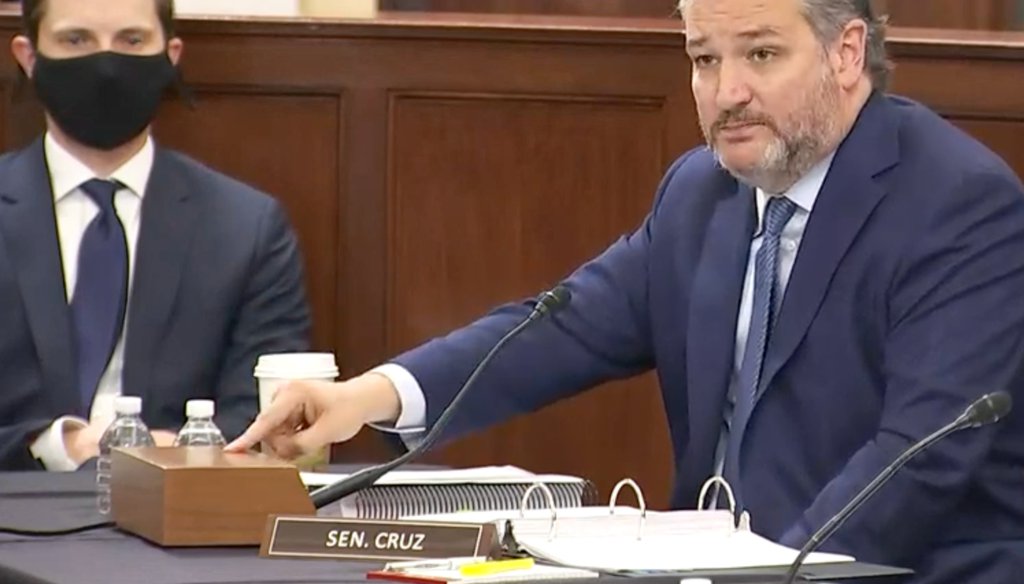Ted Cruz repeats false claim that voting bill “would register millions of illegal aliens to vote.”
Attacks on Senate Democrats’ latest attempt to rewrite the nation’s voting laws have grown fierce, and perhaps no other Republican has condemned the Democratic measure quite like U.S. Sen. Ted Cruz, R-Texas.
To Cruz, the For the People Act, or S 1, is “the most radical legislation the Senate has considered” since Cruz entered office in 2013, and it’s “the most dangerous legislation pending before the U.S. Congress,” he said during a Tuesday morning meeting of the Senate Rules Committee.
Then, invoking a term many Democrats have used to denounce the slew of voter restriction bills being pushed by GOP-led state legislatures across the nation, Cruz called the For the People Act “Jim Crow 2.0.”
“This legislation would register millions of illegal aliens to vote. It is intended to do that,” Cruz said. And by allowing “millions of people to vote illegally,” his argument continues, it would “dilute the legal votes of American citizens.”
“This bill doesn’t protect voting rights, it steals voting rights from the American people,” he said.
As it stands now, passage of the For the People Act doesn’t appear likely. The bill’s House version, HR 1, passed nearly along party lines. But it failed to advance in the Senate Rules Committee after a 9-9 deadlock. And if it ever is brought to floor of the split Senate, Democratic Sen. Joe Manchin’s break from his party may sink the bill once and for all. (Manchin instead has chosen to support a more narrow voting rights bill, which he says will have a greater chance of gaining some Republican support.)
The Democratic bill is indeed sweeping. At 791 pages, the bill does everything from prohibiting states’ voter ID laws to breaking the gridlock of the Federal Election Commission by removing a member. But would the bill “register millions of illegal aliens to vote?” And is registering millions of ineligible voters the bill’s intent? …
Read the full story and see how Cruz’s claim rated at PolitiFact. And hear an interview with PolitiFact’s Brandon Mulder in the audio player above.















